Wai 262 is one of the most significant and far-reaching claims considered by the Waitangi Tribunal, and current work to resolve the issues it raised will affect everyone participating in science and research in Aotearoa. This pan-tribal claim covered key issues of misappropriation of mātauranga Māori through research processes, the protection of Māori knowledge systems, the protection of native flora and fauna, and cultural intellectual property rights.
2021 marks the 30-year anniversary of the Wai 262 treaty claim submission, and 10 years since the tribunal report, Ko Aotearoa Tēnei. Many pioneers of this kaupapa are no longer with us, and we acknowledge the sacrifices they made in setting a strong foundation on which we can build. Descendants and representatives of the original claim, through Te Taumata Whakapūmau, continue to lead Māori engagement with the Crown on this kaupapa.
30 years on, how far have we come? Within our national science system there is significant variation in CRI and University policy (from which many of our National Science Challenges operate) and often limited understanding of issues such as:
• Effective safeguarding and protection of te reo and mātauranga Māori;
• The role of national and international instruments affecting indigenous rights and indigenous organisms; and
• Data ownership, access, and control.
The final stage of our National Science Challenges offers us all a unique opportunity to address these intergenerational issues, and advance the thinking, policy, capability and behaviours within Aotearoa’s science system.
Below are the links to the two Wai 262 webinars that were held in 2021. You can access the subsequent report that was released as a result of the webinars below. The report focuses on a best practice guide for science partnership in a way that gives effect to Te Tiriti at the grievances outlayed in the Wai 262 claim. You can access the launch webinar of the guide here or go directly to the Wai 262 Best Practice Guide.
History and Impacts of Wai 262 Webinar
We all need to understand the origins, history and impacts of the claim on individuals and whanau, so that we can understand its broader implications in our science and research landscape. Panellists will talk about the injustices, issues, and tensions that resulted in the claim, and the subsequent Waitangi Tribunal report, along with the unresolved concerns that remain on the table to be addressed.
Panel members:
• Aroha Mead
• Sheridan Waitai
• Jessica Hutchings
• Facilitator: Joshua Te Kani
Wai 262 and Opportunities for National Science Challenges
Te Pae Kahurangi, the government’s 2020 CRI review, has signalled changes ahead. While the future of National Science Challenges is unclear, there is still much that can be achieved in the next 3 years. The ability of our National Science Challenges to push at the edges of critical societal issues creates a unique environment for practical and innovative responses to issues associated with Wai 262. This session will discuss challenges and opportunities in Aotearoa’s science system, highlight examples of responsible practice within National Science Challenges, and look at where we can prioritise action to advance this kaupapa over the next 3 years.
Panel members:
• Meika Foster, High Value Nutrition
• Pauline Harris, Science for Technological Innovation
• Melanie Mark-Shadbolt, Ministry for the Environment
• Facilitator: Josh Te Kani, Resilience to Nature’s Challenges
Panellist Information
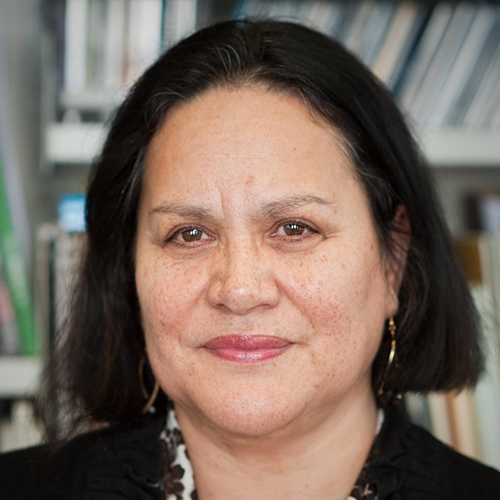
Aroha mead
Ngāti Awa, Ngāti Porou
Aroha is a political scientist specialising in the contribution of indigenous peoples to regional, national, and global policy and law. She is a leading figure in the national conversation on Wai 262 and has published extensively on indigenous sustainable development, indigenous cultural and intellectual property policies, participatory conservation, bio-cultural heritage, the role of culture in development and sustainability, and many other issues.
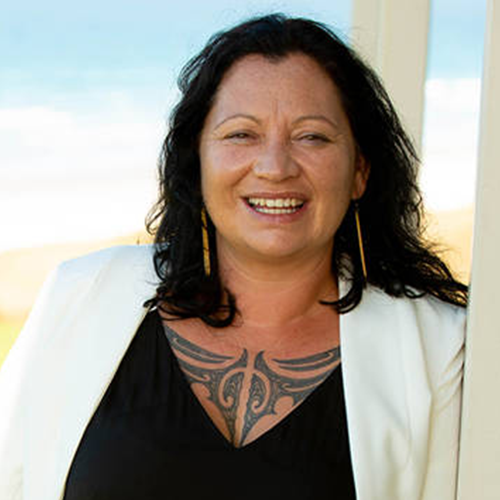
Sheridan Waitai
Ngāti Kuri, Te Rarawa, Tainui
Sheridan grew up in Te Hiku o te Ika. She has significant experience in legislation and the policy environment in relation to indigenous issues, she has contributed to environmental, social, education and health initiatives. She has been instrumental in the continuation of the WAI262 Fauna and Flora Claim for Ngāti Kuri. She has maintained the relationship with other claimant whānau and iwi over many years that has resulted in a national work programme for Māori.

Dr Jessica Hutchings
Ngāi Tahu, Ngāti Huirapa, Gujarati
Jessica is the Treaty Relationship Manager for the Biological Heritage National Science Challenge. She has a PhD in environmental studies and completed a post-doctoral fellowship in Maori health research. Jessica is a well-known kaupapa Māori research leader and Māori science strategist, trained in the fields of environmental and Indigenous studies. She has held senior management and leadership roles in the Māori science and research sectors and is a widely published author.
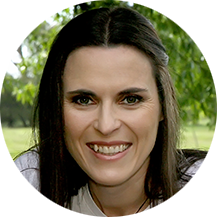
Dr Meika Foster
Te Ātiawa, Ngāti Mutunga
Meika specialises in human molecular and metabolic nutrition research. She also has a background in Law, with particular interest in cultural and intellectual property. Meika currently leads the implementation of Vision Mātauranga in the High Value Nutrition science and innovation programmes.
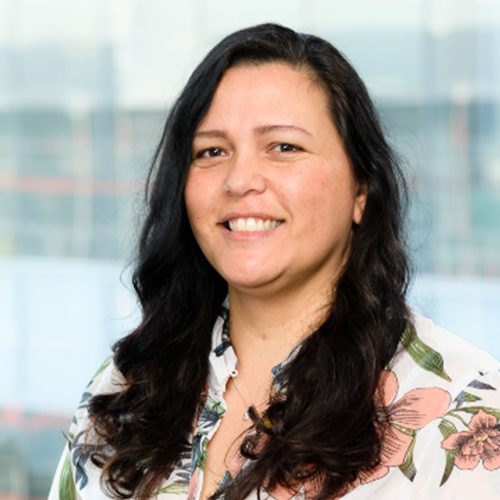
Dr Pauline Harris
Rongomaiwahine, Ngāti Rakaipaka and Ngāti Kahungunu
Pauline’s background is in physics. Her current work is focussed on mātauranga Māori associated with Māori astronomy, traditional Māori calendars called Maramataka, climate change and sustainability. Pauline is the Associate Vision Mātauranga Theme Leader in Science for Technological Innovation.
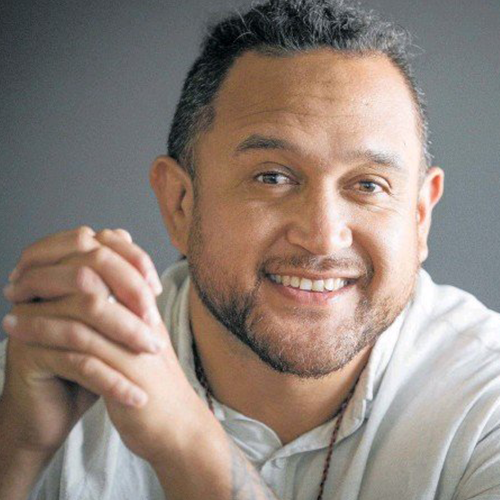
Joshua Te Kani
Facilitator (Mauāo maunga, Ngāi Te Rangi, Ngāti Ranginui, Ngāti Pūkenga)
Josh has a background in iwi broadcasting, iwi health program development, and iwi council/crown engagement. He is currently the Vision Mātauranga Knowledge Broker for Resilience to Nature’s Challenges.
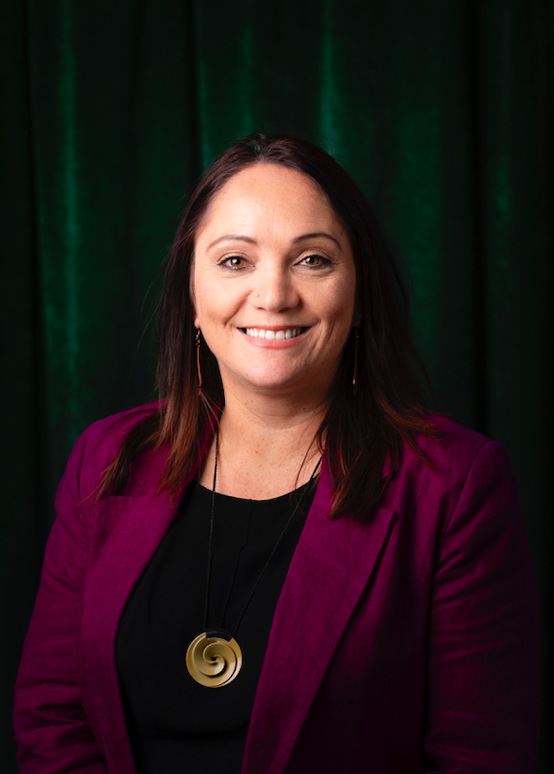
Melanie Mark-Shadbolt
Ngāti Porou, Te Arawa, Te Ātiawa, Ngāti Raukawa, Ngāti Tūwharetoa
Melanie is an Indigenous environmental sociologist. She has previously been the Director Māori for the Biological Heritage National Science Challenge and continues to undertake research in that Challenge. She is the Deputy Secretary for Māori Rights and Interests for the Ministry for the Environment and is passionate about the environment, indigenous rights and the empowerment of communities to manage their own resources.